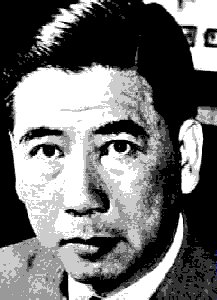by
Ari R.
. .
.
Ngo Dinh Diem, the first president of South Vietnam, was assassinated in a Saigon suburb on November 2, 1963. With him was his brother, Ngo Dinh Nhu, who was also assassinated in the process.
. .
.
Ngo Dinh Diem, the first president of South Vietnam, was assassinated in a Saigon suburb on November 2, 1963. With him was his brother, Ngo Dinh Nhu, who was also assassinated in the process.
In 1955, President Eisenhower and his administration wanted to establish southern Vietnam as a new country. American military, political, and economic aid was needed in order to create the Republic of Vietnam, which was created that same year. A leader for the new nation was necessary, and Ngo Dinh Diem was the one who was chosen. The election was somewhat awkward because more votes were cast than the actual amount of voters. Ngo Dinh Diem was strongly anti-Communist, and this was why the U.S. supposedly supported him. Once he was named president he stated South Vietnam was under attack from the Communist-North Vietnam. He needed support from Americans, because he wanted to end Communism in Vietnam. The U.S. gave him the military force required.
However, some of Diem's actions conflicted with many people in Vietnam. Such laws as 10/59 state that it was legal to keep a man or woman in jail if they were suspected Communists. In addition, Diem's opposition towards Buddhists (he was Roman Catholic) sparked large protests. In may of 1963, Diem banned the flying of the Buddhist flag. Diem's brother, Nhu, was also know for helping Diem in planning a raid against Buddhist pagodas in South Vietnam. One famous protest in relation to that event shocked the United States greatly. In this demonstration Buddhists monks set themselves aflame in order to make their point. With many people in Vietnam observing Diem's prejudice against Buddhism, the opposition towards Ngo DInh Diem grew. Diem accused that the attacks from these people on secret police and his soldiers were common acts of communism. Diem quoted these events to be, " a hostile act of aggression by North Vietnam against peace-loving and democratic South Vietnam." It was clear that Diem felt any act of resistance was an act of communism. Surely around this time, Diem was being given a bad reputation for his supposedly evil and tyrannical organization. This reputation was especially popular in the U.S., where many Americans disagreed with his regime, even though he was trying to make a stand for democracy in Vietnam. The U.S. was in a bad position. They had the president who they were fighting for, being portrayed as a brutal and inhumane person.
When this was happening, Kennedy felt humiliated, for the situation was making the U.S. look foolish. Soon after these events, some Army of the Republic of Vietnam (ARVN) generals planned a coup d'tat aimed at Ngo Dinh Diem. Henry Cabot Lodge, the U.S. ambassador in Vietnam, informed the ARVN generals that the Kennedy administration would not protest. Diem had words with Lodge about the current situation. In a phone call Diem asked, "Some units have formed a rebellion and I want to know, what is the attitude of the U.S.?" However it was too late. Ngo Dinh Diem and his brother were both captured and assassinated in trying to flee from Saigon. Kennedy, who said he would not object, was assassinated three weeks later in Dallas. Two important political figures were killed within weeks of one another.